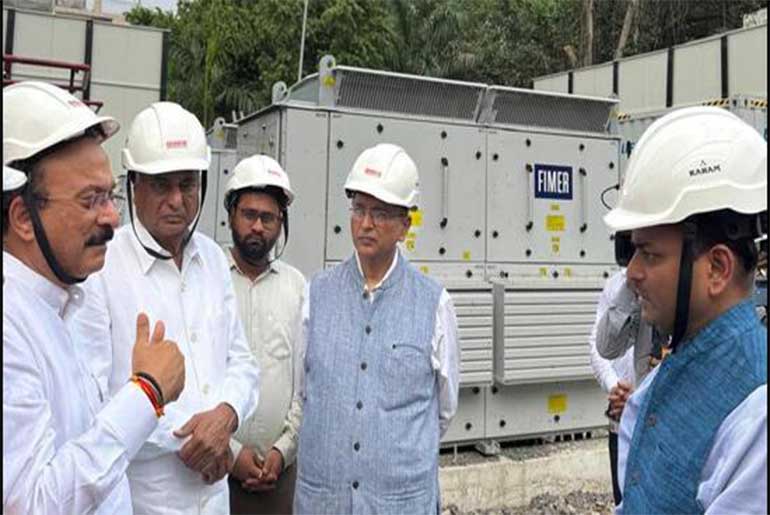Ashish Sood, Delhi’s power minister, opened South Asia’s “largest” battery energy storage system (BESS) at Kilokari on Thursday. The system, which is India’s first approved utility-scale energy storage, will help provide better power supply across various areas of south Delhi for over a hundred thousand people, says BRPL.
The 20-MW (40 MWh) BESS installed at the BRPL substation at Kilokari is the “largest” utility-scale system in South Asia.
“The energy storage system is designed to deliver up to four hours of reliable daily power-two hours each during the day and night-directly benefiting over one lakh residents in the densely populated Kilokri area in south Delhi,”
– Ashish Sood, Delhi’s power minister.
Benefits of the system include better power supply, improved grid stability, lower costs for purchasing energy, power peaking, a reduced load on the network, and using more renewable sources. The new station at the Kilokri substation will bring power to about 100,000 people by giving them four hours of electricity every day, two hours each in the morning and evening, according to BSES. This project improves grid dependability, mainly during high energy use hours, and has established a valuable model for managing urban energy.
The project, finished in one year, uses lithium iron phosphate (LFP) technology, which is recognized for its security, stable performance, and lasting quality. The fact that the system can control temperature in its containers allows it to operate in the city’s changing weather, the discom reported.
Both South Delhi MP Ramvir Singh Bidhuri and BSES director and group CEO Amal Sinha, along with BRPL CEO Abhishek Ranjan, were at the inauguration. According to the power minister, the new technology will be used in Delhi, and the investments needed will be taken care of by the government.
“Entrepreneurs keen to work in the solar energy sector will also be supported with necessary facilities to help ensure continuous and sustainable power supply. The project will not only aid clean energy storage and green energy promotion but also mark the beginning of a new era of innovation.”
– Ashish Sood, Delhi’s power minister.
“Implementing this 20 MW storage system will reduce the strain on Delhi’s power infrastructure. The government will scale up the model further, particularly in unauthorized colonies and areas with limited land availability or no existing grid. He said the Delhi government’s top priority is to overhaul the neglected and outdated power infrastructure of the last 10 years. The aim is to rapidly adopt new technologies to ensure a smooth and round-the-clock electricity supply for the people of Delhi.”
– Ashish Sood, Delhi’s power minister.



